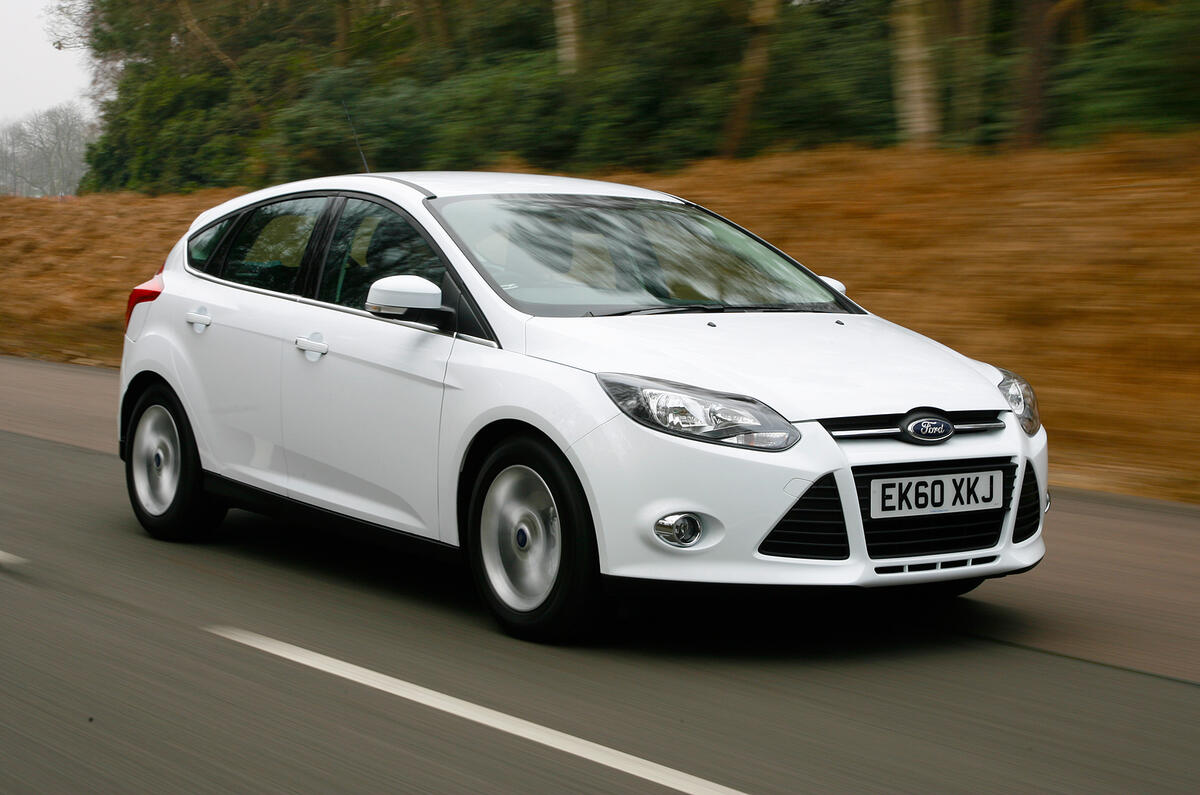Ford Focus-sized family hatchbacks returning 97.5mpg will be commonplace within three years, predicts Bosch board member Peter Tyroller – fuel economy 40 per cent better than today’s cars.
This will be achieved through a combination of powertrain improvements and other measures such as low rolling resistance tyres and engine stop-start – but unlike today, such ‘other measures’ will be a far smaller part of the improvements.
Petrol will not be left behind either: Tyroller, speaking at the SMMT International Automotive Summit at Canary Wharf, predicts a family-sized car averaging 64.2mpg on the official cycle will become common.
Next generation powertrains, such as Ford’s 1.0-litre three-cylinder Ecoboost engine (which has replaced the older 1.6-litre four-cylinder and now accounts for one in four UK Focus sales), will reduce fuel consumption by 30 per cent compared to today’s engines. Add-on measures will reduce it by a further 10 per cent, predicts Tyroller.
Up to now, it is the widespread adoption of technology such as stop-start and longer gear ratios to existing powertrains that have led fuel economy improvements. Many argue these are more effective for reducing official fuel consumption figures than actual real-world economy.
Manufacturers are making such investment in internal combustion engines because the technology will remain by far the biggest powertrain solution. Even by 2020, Tyroller predicts electrified vehicles – including plug-in hybrids as well as pure electric cars – will only account for 10 per cent of the European new car market.
Diesel in particular is vital to European legislation of achieving a 95g/km corporate fleet average CO2 figure by 2020. “Diesel is key in Europe: OEMs will achieve the 95g/km target with a small share of EV sales.” Only after 2020 will EVs start to become more important.
When asked about sales splits beyond 2025, Tyroller replied: “who knows?”
The importance of EVs in achieving CO2 targets has already declined from expectations a few years ago, added Tyroller. “Two years ago, people said our 10 per cent target was too conservative. Now, they agree” – largely because of the Europe-wide recession that has tipped the cost benefit back towards internal combustion engines.
Richard Aucock




Join the debate
Add your comment
Technical Improvements
There are areas where improvements could be made, but the thing is that these improvements may not show up on the tests that are carried out at the moment. One area is how efficiently a car goes round a corner. I refer to the 'One Hour One Gallon Challenge'. One of the reasons the Smart lost that one to the BMW was the way the Smart scrubbed off speed with understeer going round the corners. It could not carry speed and therefore energy round a corner.
I also think that there will be an increased use of active boundary layer control devices used to duct air to areas on the car body where that air can suppress turbulence.
100mpg diesels?
Hmm. Still not enough to tempt me out of my petrol car 40% of the economy.
Why not
Someone with a bit of savvy can tell me why this won;t work. What about a genny running at its most fuel efficient speed that is constantly recharging a battery pack that is driving electric motors in the wheel hubs. When the batteries don't need a charge the genny cuts out automaticly. In my head this is a great idea, now can someone tell me why its not.
qpgkx the unpronounceable
Weight. You have the extra generator batteries and drive motor to carry round in the car. All that mass has to be accelerated, using more energy. The extra weight means bigger tyres stronger chassis which also means more weight which again uses more fuel.